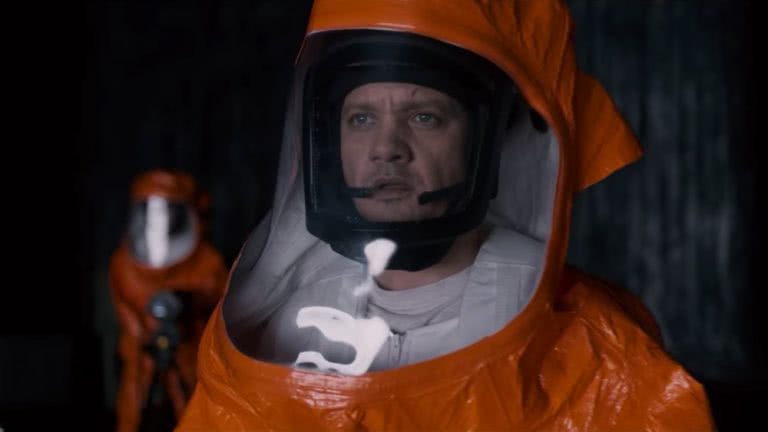★★★★
From Hollywood blockbusters to quirky comedies like Attack The Block, science fiction filmmaking often boils down to a set of very familiar tropes and beats.
Even films acclaimed for their subversive elements like District 9 fall into the same trap. Sci-fi can be about anything the imagination can muster, but the realities of Hollywood studios mean that potential is rarely embraced. At a certain point, action became the de facto approach when it came to telling sci-fi stories, and in particular, alien invasion stories.
As a result, it’s easy to imagine a version of Arrival where the set-up – aliens arrive on Earth, a linguist (Amy Adams) and physicist (Jeremy Renner) are recruited by the military to try to communicate with them – results in a more traditional romp. Instead, Arrival ends up becoming unrelentingly intellectual.
Sure, it’s a film about aliens, but it’s just as much about human nature. How would we react in the face of undeniable proof that we aren’t alone in the universe? How would we overcome that extraterrestrial language barrier? Humankind’s ability to unite, divide and learn in the face of unprecedented threats places highly on Arrival‘s list of concerns.
Despite this cranial bent, Arrival isn’t actually all that reliant on dialogue, but rather reactions. It commits to show-not-tell in a way that invites audiences to grapple with the same sense of the existential as the characters in the film do. Director Denis Villeneuve playfully keeps the visual design of the aliens and their ships obscured and off-screen until the last possible moment to great dramatic effect (even though some of that impact may be lost to the film’s marketing campaign).
The cast here is as tight as science fiction gets. Adams gets a lot of material to play with, embodying both human brilliance and terror in equal measure. Her relationships with Renner and Forest Whitaker’s Colonel Weber make up a large part of the plot, and she sells them well. The only weak point here is Michael Stuhlbarg’s character, who pops up for an important mid-movie plot point but never feels properly developed.
Like last year’s Sicario, Villeneuve delivers a visual feast here. Evocative establishing shots and distinctive visual design are combined with a buzzing score to create an equal sense of wonder and dread. Sometimes it feels like it could all go wrong at any moment, but otherwise it’s as if you’re teetering on the precipice of something truly special.
Arrivalis in cinemas now.


































